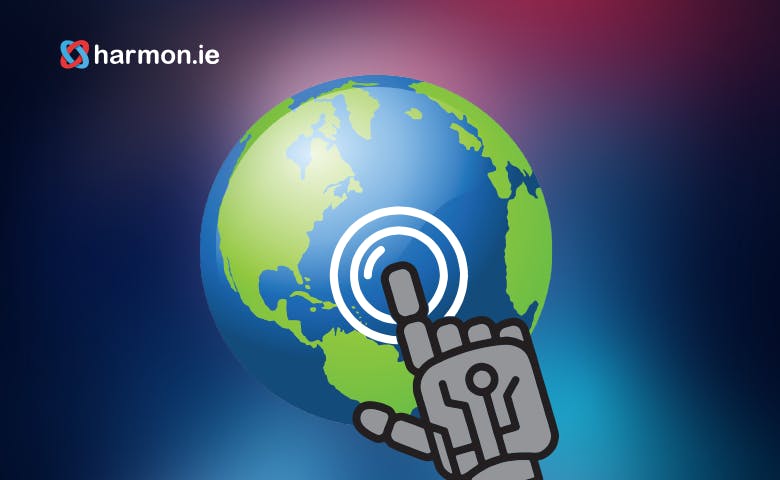Artificial Intelligence has been one of the most hyped technologies of the decade, with millions of articles, reports, blogs and conferences discussing the topic from every possible angle. But what’s the state of artificial intelligence applications right now – especially when it comes to ‘real world’ uses?
While fully intelligent general AI remains a long way off, we have seen some impressive uses of machine learning, chatbots and even image recognition technology being released in the last couple of years. Much of the cutting-edge research is still at the academic level, but we have started to see artificial intelligence applications being launched by and used in narrower application in businesses. Let’s look at some examples of how AI is being used in the ‘real world’.
Focused Artificial Intelligence applications are gaining ground in the business world
While AI often feels like it’s something ‘just around the corner’, it has, in fact, already been used by thousands of businesses in one way or another. Indeed, 61% of businesses responding to one recent survey said they have used AI in at least some form – with natural language processing, machine learning and predictive analytics the most widely used technologies. Whether your company has deployed a chatbot on your website or asked analysts to churn your data through an advanced analytics tool, there’s a good chance you’ve already used AI in some manner.
But, when we talk about AI, most people are thinking of bigger artificial intelligence applications – things which profoundly change how businesses work. And, this is starting to happen – let’s see how.
3 examples of ‘real world’ Artificial Intelligence applications
Artificial intelligence applications can have a significant, positive impact on society and how individuals spend their days at work. Deployed correctly, AI can help improve almost any industry, and could add serious value to the global economy. Here are just three examples of how AI tools are being used in the ‘real world’.
Loblaw: Canadian firm personalizes customer offerings
Today’s consumers have come to expect personalization. Whether it’s entertainment brands like Netflix or ecommerce sites like Amazon, people want offers targeted intelligently to them and their tastes. However, catching up with the giants of ecommerce is a real challenge, but it’s becoming easier as AI becomes more accessible. One such business is Loblaw – Canada’s leading food and pharmacy provider:
- The firm connected its existing loyalty program with Microsoft’s AI tools.
- Azure was used to store and process data.
- Using an AI algorithm, Loblaw could reorganize siloed information, anonymize, aggregate and then customize offers at scale.
- This let the firm start providing personalized customer offers in a way they never could before – and catch up with the market leaders in one leap.
Milan graduate school of business (MIP): personalized learning with AI
Imagine attending a college course which was completely tailored to your personal needs. No more attending classes about topics you already know well, no more re-learning skills you already have. Instead, you’d only focus on what you need for your future career. That’s the idea behind FLEXA, an artificial intelligence application being trialed by Italy’s Politecnico di Milano Graduate School of Business (MIP):
- Students sign into FLEXA when they choose to take one of the school’s MBA programs, where they partake in a range of cognitive and skills tests, answer surveys about their current and future career plans, and other factors.
- Microsoft’s AI services then create personalized learning pathways to help the student develop their skills and knowledge in the areas they most need – proposing anything from short one day courses to 6-month training programs.
- Each student is given access to a dashboard where they can review their strengths and gaps, and see how they are improving.
Schneider Electric: increasing safety and reducing maintenance costs with AI
Organizations working in the industrial sector must maintain enormous catalogs of mission-critical equipment out in the field. In the past, this required regular manual checks and tests – and if anything was missed, could result in risks to staff and the environment. Schneider Electric, a France-based industrial automation firm began using Microsoft’s AI solutions to target this issue:
- They monitored an IoT enabled pump control using a predictive analytics solution.
- Oil and gas providers could use the solution to pinpoint equipment which needs repair.
- This saves substantial sums of money on maintenance, repair, worker and environmental safety and boosts profit.
Nothing artificial about that
While there’s been a fair amount of hype about AI in recent years, the above three examples show how machine learning, IoT and similar artificial intelligence applications are having a real impact in business, education, and energy extraction, to mention just three industries.
At harmon.ie, we see incredible potential for AI to help knowledge workers. In the near future, harmon.ie will be providing new ways of bringing office-based staff the most relevant, meaningful and contextual information possible, using AI.
The impacts of AI in the ‘real world’ are starting to be felt – and there’s nothing artificial about that.

